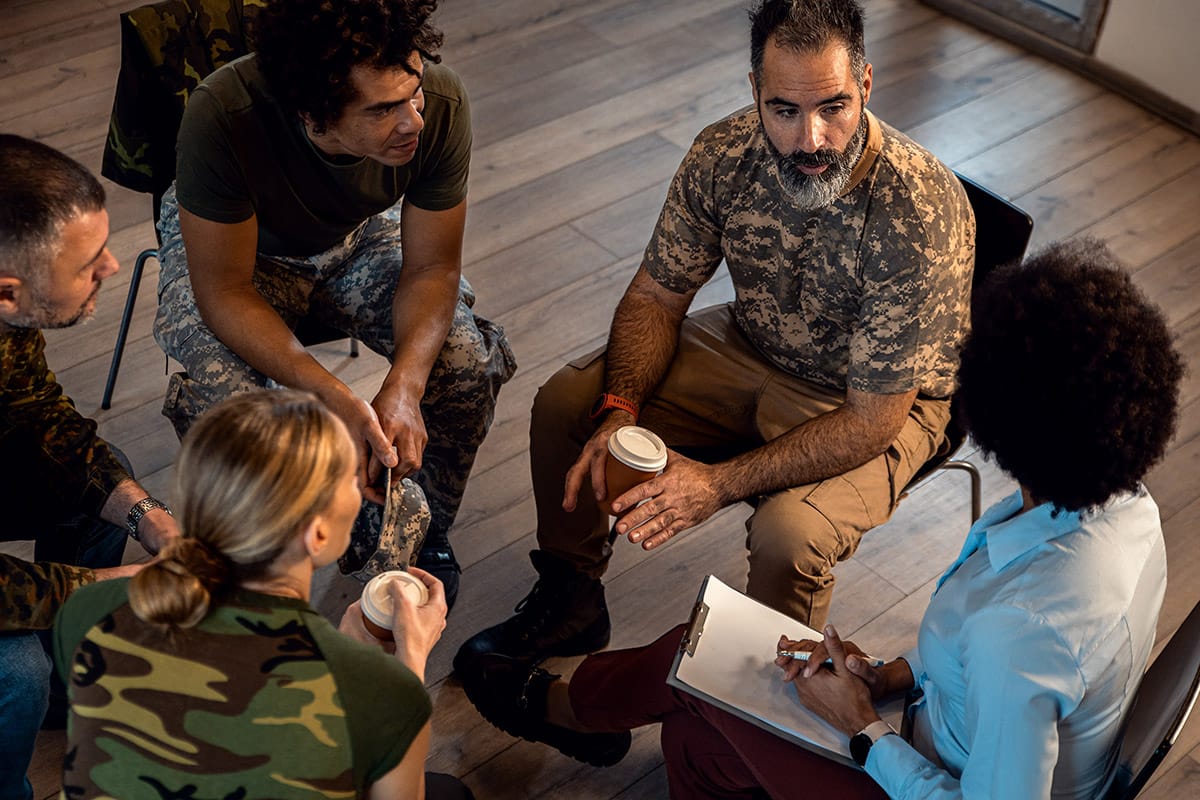The prevalence of substance abuse among veterans is a compelling concern that warrants significant attention. Many veterans seeking relief from the stress and trauma associated with military service fall prey to commonly abused drugs. These substances offer a momentary escape from the challenges they face, creating a vicious cycle of dependency that often leads to detrimental physical, psychological, and social effects.
Alcohol, prescription medications, and illicit drugs make up the majority of substances frequently misused by veterans. The addiction potential of these substances is high, further compounding the problem. Understanding the reasons behind this alarming trend is the first step in developing targeted interventions and effective substance abuse treatment for veterans to support them toward recovery.
Commonly Abused Substances by Veterans
Among the commonly abused substances by veterans, alcohol, prescription drugs, and illicit substances are the most frequently misused. Using these substances is often a misguided attempt to cope with the extreme stressors associated with military service, leading to grave health and social consequences.
Alcohol
Alcohol is the most commonly abused substance among veterans. Many seek refuge in alcohol to cope with stress and PTSD symptoms, such as flashbacks, nightmares, and anxiety. Over time, this self-medication can lead to addiction and various health issues. Alcohol is the most easily accessible and socially accepted substance, making it one of the most commonly abused drugs.
Prescription Drugs
Prescription medications are another form of commonly abused substances by veterans. In many cases, this type of misuse is due to self-medicating with leftover or borrowed medications prescribed for a medical condition. Abuse of prescription opioids, in particular, can lead to physical dependence and addiction.
Illicit Drugs
Illicit drugs, such as marijuana (while legal in some places), methamphetamine, cocaine, and heroin, are also frequently misused by veterans. These drugs offer a stronger escape from the physical and psychological symptoms of PTSD; however, they carry even higher risks of addiction and adverse health effects than alcohol or prescription medications.
If someone you know is suffering from addiction, offering them support and resources for recovery is essential. A veterans rehab program should address the reasons behind the addiction and provide education about the dangers of drug misuse. Treatment options should include counseling, peer support groups, and medication-assisted therapies to help those with substance use disorder build a foundation for recovery.
Signs of Drug Abuse in Veterans
When faced with substance abuse, it is essential to be aware of the signs to intervene early and provide veterans with the necessary resources for recovery. The following are some of the common indicators of drug abuse in veterans:
- Changes in behavior (i.e., mood swings, irritability)
- Unusual financial behaviors (i.e., borrowing money or increased spending)
- Significant changes in physical appearance (i.e., weight loss, red eyes)
- Neglect of personal responsibilities (i.e., missing work/university, not taking care of family duties)
- Increased secrecy and isolation
- Poor performance at work or school
The problem of substance abuse among veterans is a pressing issue that requires our collective efforts. By offering timely assistance and resources, one can support our veterans in their recovery journey, helping them regain control over their lives and health.
Effectively Treating Substance Abuse in Veterans
Addressing substance abuse among veterans is an urgent public health concern and a moral obligation. Recognizing the prevalence of drug and alcohol misuse in this population, it is essential to develop targeted interventions and treatment programs that meet their unique needs. A drug rehab program for veterans can help.
Substance abuse treatment for veterans should involve comprehensive, evidence-based approaches focusing on individualized recovery plans. Treatment should include cognitive-behavioral therapy, group counseling, peer support, medication management, and relapse prevention strategies. Additionally, several specialized programs offer addiction treatment specifically for veterans.




